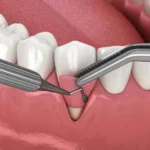Circulation is important to your overall health. Circulation is the process by which a person’s blood is pumped around their body by the heart. A person’s health is dependent on good circulation.
It ensures that blood and oxygen are constantly flowing throughout the body, allowing every organ to function normally. It promotes wound healing, keeps your brain sharp, your heart healthy, and even gives your skin a natural flush.
Circulation can also have an impact on the immune system, as certain blood cells carried by the bloodstream aid in the fight against infection.
Many people suffer from chronic blood circulation problems, and thoughts about circulation are almost always present in their minds.
Your body is constantly circulating fluids, most notably blood, throughout it. In fact, your heart pumps approximately 5 quarts of blood through your body’s blood vessels every minute.
As your blood circulates throughout your body, it delivers oxygen and nutrients to the cells and aids in the elimination of waste products.
What Causes Poor Circulation?
Peripheral artery disease (when arteries narrow and reduce blood flow), obesity, anemia, untreated blood clots, uncontrolled diabetes, and high blood pressure can all have an impact on a circulation
Following maybe some of the symptoms when you suspect you have poor circulation:
- Inadequate energy or concentration
- Extremely cold extremities (hands and feet)
- Hair thinning or loss
- Slow healing delayed healing which is a result of a weakened immune system
- Erectile dysfunction that affects men.
- Throbbing
- Stinging
- Numbness
- Tingling
- Cramps
- Pain
- Warmth or coolness
- Swelling
How to increase blood circulation
Walking – Getting out and moving is good for our bodies, but it also benefits our physical and mental health in so many other ways! It is recommended to do 30 minutes of mild to moderate exercise per day. And for many of us, the best way to promote healthy blood flow is simple and convenient: walking.
Massage – Getting a massage is another excellent way to improve circulation. A massage can not only provide you with great relaxation and relief from the stresses of life, but it can also stimulate your body’s blood flow.
Massages, like walking and exercise, help to promote healthy circulation by moving blood and lymph fluid through your limbs. Regular massages can also help you sleep better, reduce pain, and improve flexibility and immune function. In particular, it aids in encouraging lymph fluid to flow through lymph vessels, which improves the immune system’s function.
Drink plenty of water –According to estimates, 75 percent of people have low blood circulation because they are chronically dehydrated. Dehydration is one of the most easily avoidable medical conditions on the planet. The advantages of drinking water extend far beyond mere thirst.
Manage Stress – According to experts, stress is the “silent killer,” causing more than 60% of all human illnesses and diseases, including cardiovascular and thus circulatory disease. In times of extreme stress, the “fight or flight” response takes place.
Although our ancestors relied on this reaction for survival, in modern times, we frequently activate it too quickly and too frequently, with sometimes fatal consequences. Learning to manage stress is critical for your overall health, including circulation and healing.
Take Omega-3 Fatty Acids- Omega-3 fatty acid-rich foods promote cardiovascular health and circulation. The American Heart Association suggests consuming at least two servings of omega-3 fatty acids per week. If you are unable to consume the recommended amount, you should consider taking a high-quality supplement.
Food high in omega-3 fatty acids include the following:
Fish that is fatty (salmon, tuna, herring, lake trout, and sardines)
- Oil extracted from cod liver
- Kale
- Walnuts
- Flaxseeds and pumpkin seeds
Elevate your legs– Most patients with varicose veins realize that elevating their legs helps them feel better. Many of us sit for long periods of time during the day. Sitting and standing can cause blood to pool in the veins of the legs, resulting in swelling, cramping, pain, agitation, itching, and fatigue. Elevating your legs for 20 minutes every day can help improve circulation and alleviate these symptoms.
The best approach is to elevate your legs above your heart by lying on the couch, floor, or bed and placing several pillows under your legs to keep them straight. Alternatively, while lying on the floor near a wall, place a small pillow under your lower back. Then, straighten your legs up the wall, leaving as little space as possible between your butt and the wall. Once in this position, relax your arms by your sides and breathe and relax for as long as you can, preferably 10-20 minutes. As an added bonus, this pose can also be used as a relaxation technique!
Reduce your consumption of alcohol – Alcoholic beverages destroy circulation. Alcohol can cause your arteries to harden, impairing your body’s ability to properly circulate blood. Try quitting alcohol slowly. Moderate alcohol consumption can be good to your body, but make sure you understand what “moderate” means.
Exercising – You can significantly improve your circulation with just a few minutes of basic stretching a couple of times per day. Stretching helps to increase blood flow to the tissues and organs of your body.
The majority of people spend their days sitting at a desk in the same position, which, as you may be aware, can lead to a slew of issues.
Making an effort to get up, walk around, and stretch on a regular basis can help combat circulation issues as well as a variety of other issues caused by spending too much time sitting.
Improving circulation is critical to improving vein health and comfort. You can improve your vein health and leg pain by incorporating one or two of these into your weekly routine. Choose the options that make you stay active and maintain a good level of blood circulation.
When should you see a doctor?
If a person has symptoms of poor circulation, or if a male faces issues of ED, it is critical that they consult a doctor. A doctor can help diagnose the problem and recommend treatment for any underlying conditions. They may also advise eating a healthy diet, exercising regularly, and quitting smoking to improve circulation.
How good blood circulation can help cure Erectile Dysfunction.
Erectile Dysfunction is caused due to poor blood flow in the penis, which causes problems in maintaining an erection. In the process of erection, the blood vessels play a major role. The smooth muscles of the arteries in your penis relax, allowing the blood vessels to expand and fill with more blood. If there is no proper blood flow, the erection will not be there. This is how good blood circulation will help to cure erectile dysfunction.
Erectile Dysfunction can be treated with medication as well. Some of the most common medicines used by men are:
Conclusion
Having good blood circulation has many health benefits. Maintaining a healthy lifestyle will help you to maintain good blood circulation. Eat a proper diet, take vitamins, exercise and stay active; these all will help you to have good blood circulation and help you to stay away from diseases.







